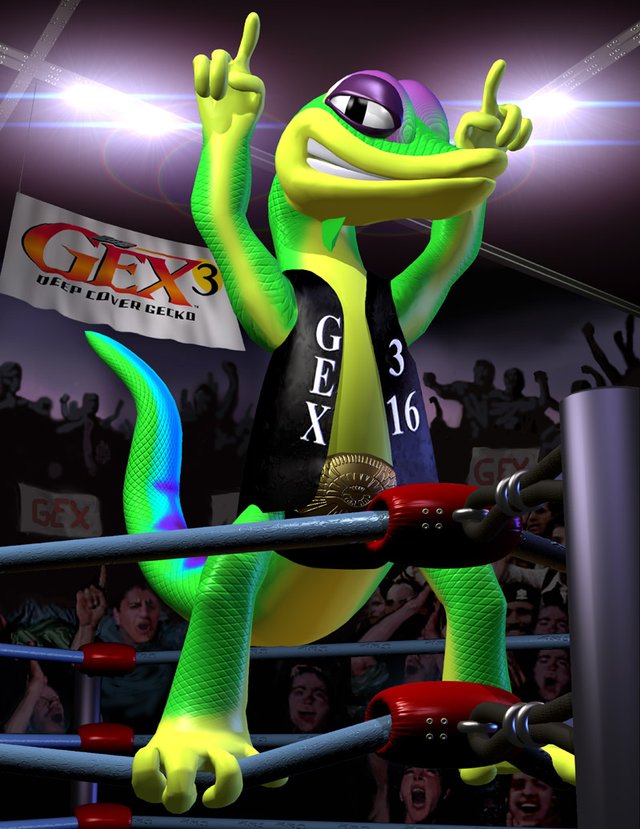The Case Files
Squaring Up For Acquisition?

In the lead-up to an amateur wrestling meet, competitors will wrap themselves in cellophane in order to force their bodies to sweat and shed as much water weight as possible. These athletes do this when they are on the low end of their weight class in a last-ditch attempt to lose enough weight before the official weigh in to wrestle in a lower weight class giving them a size advantage over their opponents. Much like the wrestlers, Square Enix’s sale of Crystal Dynamics, Eidos Montreal, Square Enix Montreal, and all of the corresponding IP to Embracer Group could be an attempt to shed the market share of their western studios in pursuit of being acquired themselves by the biggest fish in the pond.
Just a few weeks ago, Square Enix announced the sale of both their western development studios and IP for a cool $300 million. That means that Crystal Dynamics, Eidos Montreal, Square Enix Montreal, 1100 employees, Tomb Raider, Deus Ex, Thief, Gex, and several more IP’s all combined were evaluated at just $300 million. Now I say “just” because while $300 million is undoubtedly a lot of money, it isn’t nearly what most people would think these studios and IP’s would be worth. The valuation of this acquisition seems low…suspiciously low.

One company acquiring another is never as simple as an accepted offer and paperwork. Especially when acquisitions at the level of Embracer Group and a significant part of Square Enix occur, there must be an evaluation by the Federal Trade Commission in order to ensure that the proposed acquisition won’t be detrimental to the consumer. The primary tool that is used by economists at the FTC to measure competition within a market is called the Herfindahl index, named for Orris C. Herfindahl. A Herfindahl index for a market is determined by squaring the percentage of market share that each individual player in the market currently holds and then adding those values together, the sum of which is the Herfindahl index score. The closer to 10,000 a Herfindahl index score is, the closer to pure monopoly a market is, so naturally, a lower Herfindahl index is better for the consumer. When accounting for the roughly $151 billion generated within the gaming industry, Sony is firmly in position as the market leader. Because Sony is in the market leader position, they are the most likely of any players in the market to be denied an acquisition by the FTC.
Over the course of the past twenty-five years, Sony and Square Enix have become increasingly friendly by working together on some of the biggest franchises in gaming. Square’s single biggest franchise, Final Fantasy, found its home on the original PlayStation with 1997’s Final Fantasy 7. Since then, Sony has enjoyed console exclusivity on some of Square’s biggest hits ever, like Final Fantasy 8, 9, 10, 10-2, 14, and 7 Remake, and the relationship between the two is clearly still alive and well, as evidenced by the upcoming timed console exclusive agreements for both Forspoken and Final Fantasy 16. As a result of this close working relationship between Square and Sony, and all the acquisitions that have been happening across the industry of late, people have begun to wonder if Sony will make a play at acquiring Square.

With the recent announcement of Square’s selling all of their western-based studios and IP to Embracer Group, that acquisition people have been speculating on may be more likely than ever. Were Sony to acquire Square, both parties would benefit. Sony would obviously not have to pay exorbitant fees for exclusivity agreements and would also not risk those agreements being negated when the games are released on Xbox immediately following the agreed upon exclusivity window. And Square would benefit from being acquired by Sony as their market cap valuation has been on a downward trend over the past fifteen months. It seems as though Square has peaked, and Sony’s finally putting a ring on it could be mutually beneficial.
So what is it that leads me to believe that Square is positioning itself to be acquired? The sale of their western studios and IP for pennies on the dollar is a move that practically screams acquisition. This move isn’t about reducing their market cap to make themselves more appealing to Sony; otherwise, Square would have been willing to sell those same studios and IP to Sony for an even better deal than Embracer Group got. Like the wrestler cutting weight before a meet, the sale of these studios and IP appears to me to be more in service to cutting market share. Because of the way a Herfindahl index is calculated, any acquisition will lead to a higher Herfindahl index score, but when there are players in the industry as large as Sony, sometimes a medium-sized firm acquiring a smaller firm can actually lead to the entire market being more competitive as it can give the previously medium-sized firm more market influence that the larger firms in the market must then respond to. But in the case of the market leader, any acquisition will lead to a less competitive market.
So if Sony were to acquire Square, there would be a few prerequisite actions that could make said acquisition more likely for the FTC to approve. Obviously, being in the process of acquiring Bungie, Sony wouldn’t want to do anything to jeopardize that approval, so no deal with Square could be announced until the ink on the Bungie deal was dry. Second, the market influence possessed by Square would have to be at a practical all-time low. If Sony were to acquire Square, then naturally, their own market influence would go up, and the greater degree to which that market influence increased, the more likely acquisition would be to be denied. Square’s sale of Crystal Dynamics, Eidos Montreal, Square Enix Montreal, and all the corresponding IP seems to be in pursuit of that significantly reduced level of market influence. The abandonment of their presence in the west is undoubtedly just the first step of a larger vision, and reduced market influence points to that vision being acquisition.

At this point, I think Sony acquiring Square is clearly something that both parties are interested in. Their long-running alliance combined with what seems to be Square’s major steps to make themselves more appealing to Sony makes the long-term play more conceivably realistic. Assuming both Sony’s acquisition of Bungie and Embracer Group’s acquisition of Square’s western studios are approved by the FTC by the end of 2022, I have a hard time seeing 2023 come and go without an announcement of Sony acquiring Square Enix.

-

 Features4 weeks ago
Features4 weeks agoDon’t Watch These 5 Fantasy Anime… Unless You Want to Be Obsessed
-

 Culture3 weeks ago
Culture3 weeks agoMultiplayer Online Gaming Communities Connect Players Across International Borders
-

 Features3 weeks ago
Features3 weeks ago“Even if it’s used a little, it’s fine”: Demon Slayer Star Shrugs Off AI Threat
-

 Features2 weeks ago
Features2 weeks agoBest Cross-Platform Games for PC, PS5, Xbox, and Switch
-

 Game Reviews4 weeks ago
Game Reviews4 weeks agoHow Overcooked! 2 Made Ruining Friendships Fun
-

 Features3 weeks ago
Features3 weeks ago8 Video Games That Gradually Get Harder
-

 Game Reviews4 weeks ago
Game Reviews4 weeks agoHow Persona 5 Royal Critiques the Cult of Success
-

 Features2 weeks ago
Features2 weeks agoDon’t Miss This: Tokyo Revengers’ ‘Three Titans’ Arc Is What Fans Have Waited For!
-

 Features1 week ago
Features1 week agoThe End Is Near! Demon Slayer’s Final Arc Trailer Hints at a Battle of Legends
-

 Uncategorized3 weeks ago
Uncategorized3 weeks agoSleep Meditation Music: The Key to Unwinding
-

 Guides2 weeks ago
Guides2 weeks agoHow to buy games on Steam without a credit card
-

 Game Reviews2 weeks ago
Game Reviews2 weeks agoFinal Fantasy VII Rebirth Review: A Worthy Successor?






















